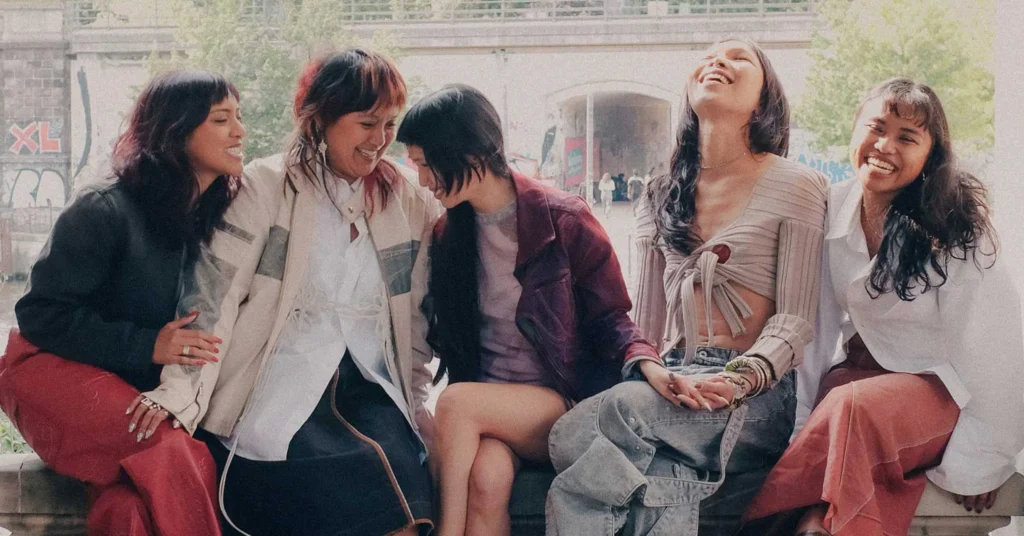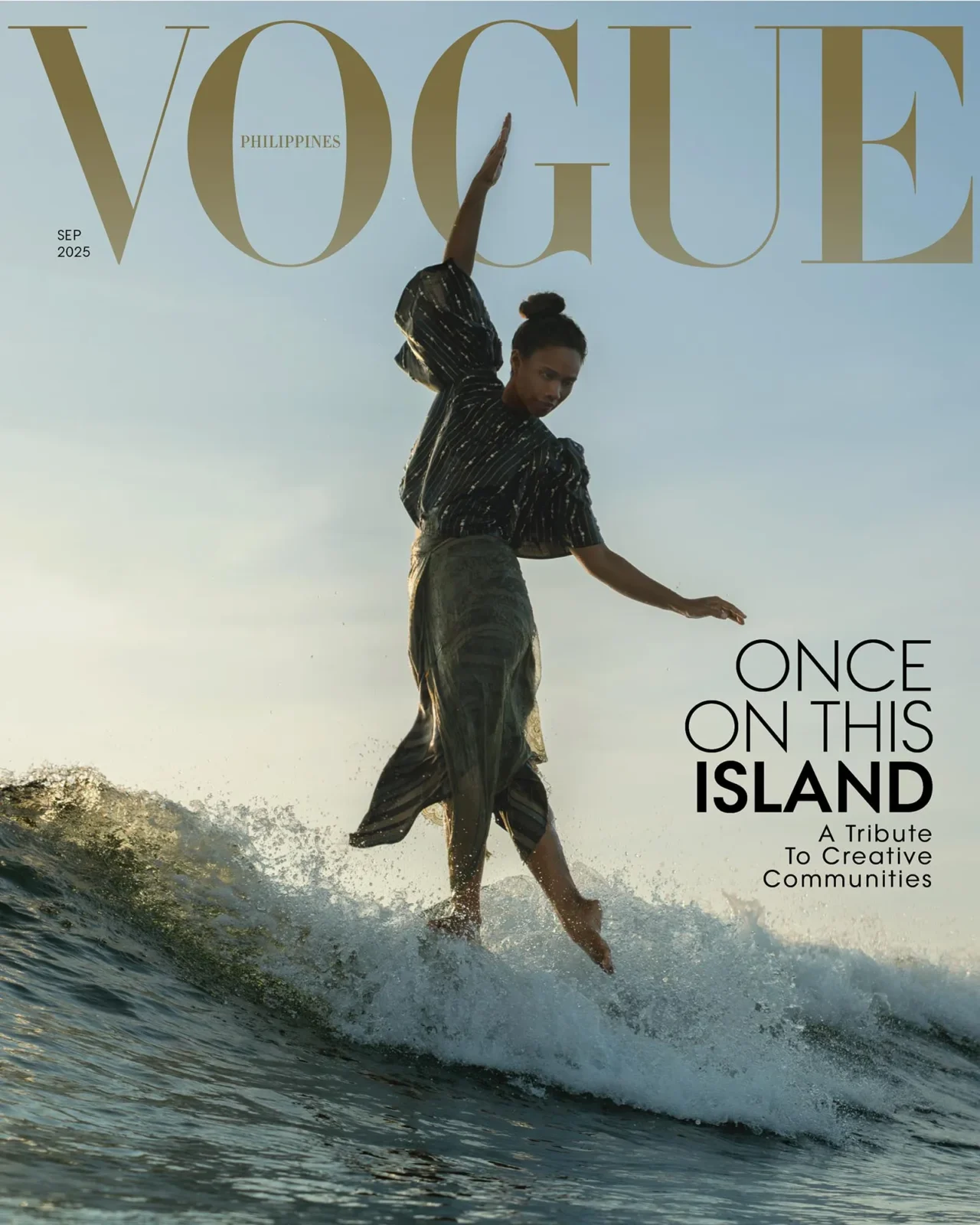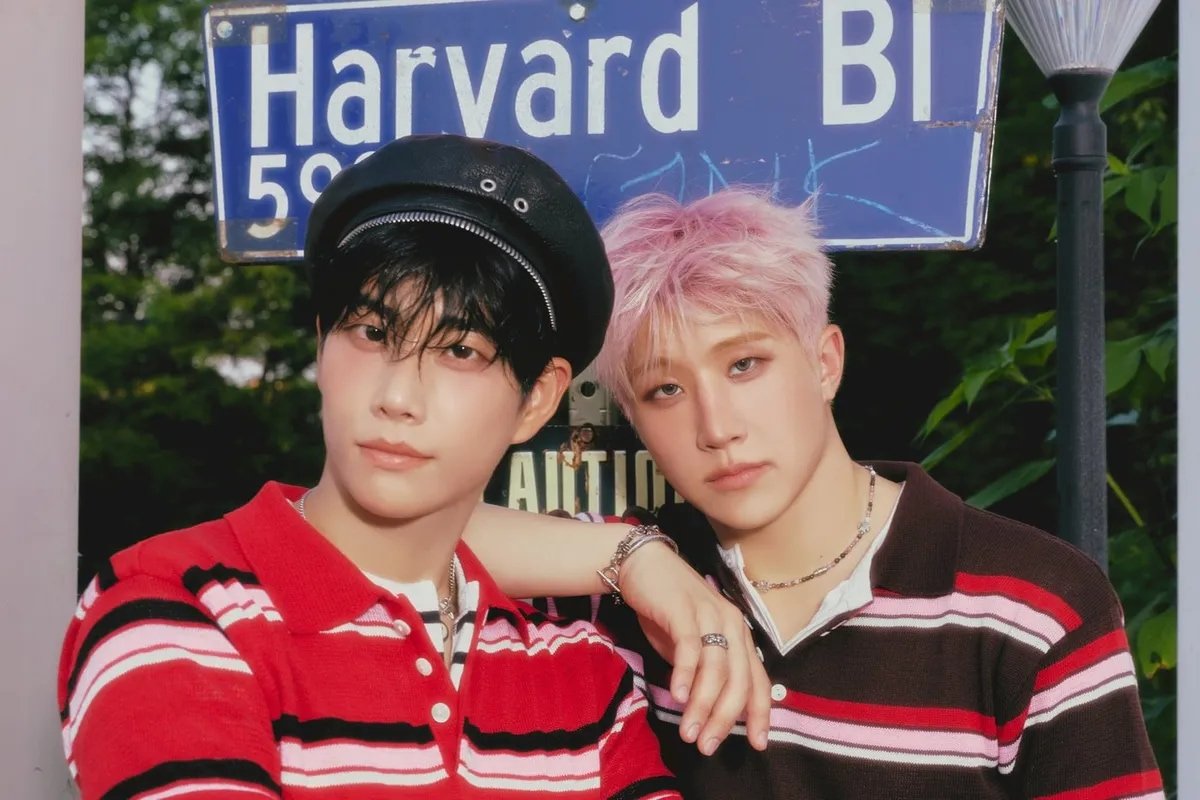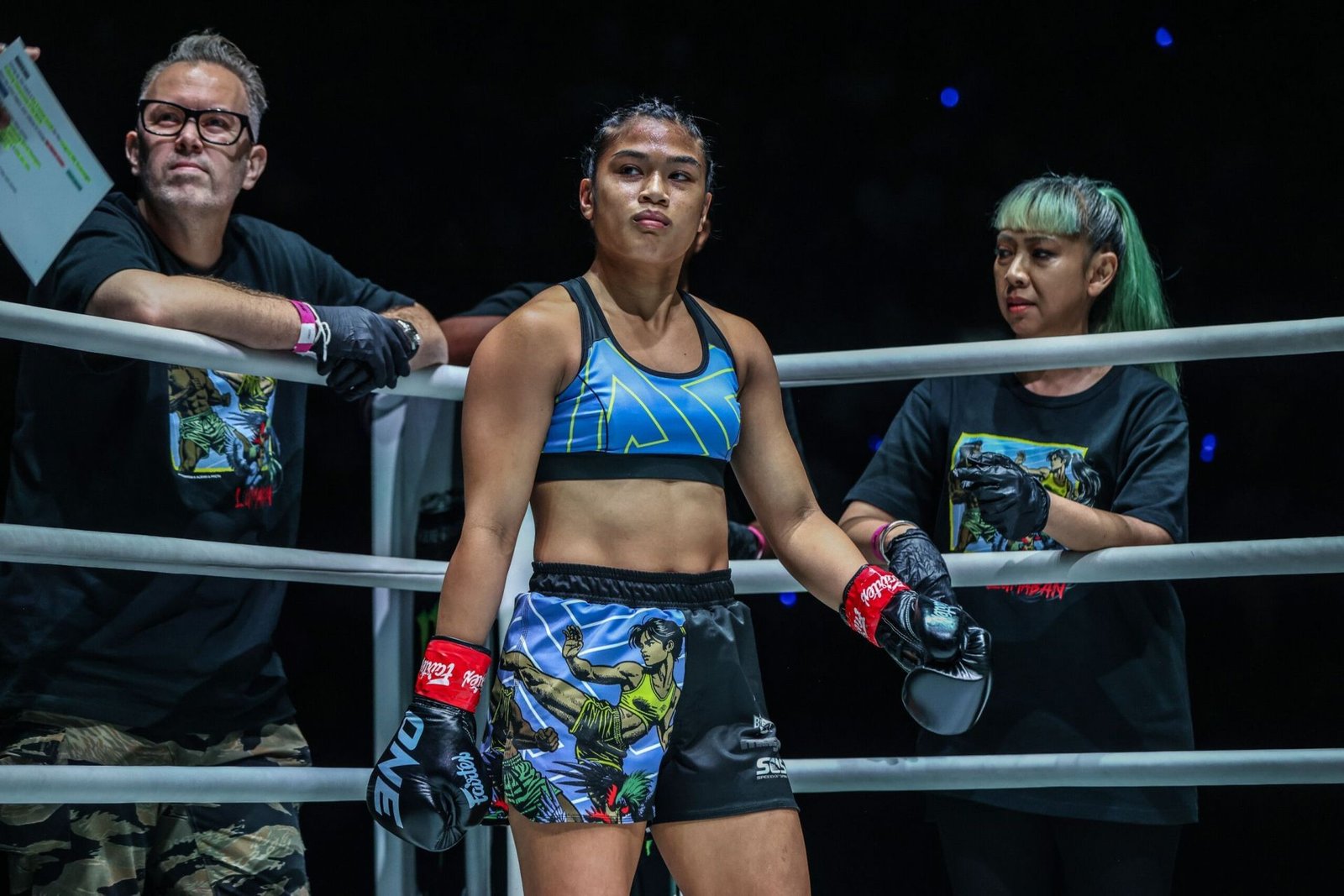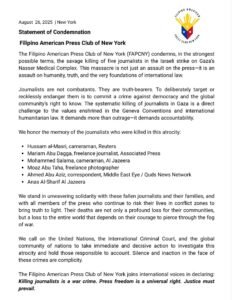Creativity, community, and kapwa are alive among Filipino Berliners.
Berlin is an oddity among European capitals, dubbed by many as the least “capitalist” city on the continent. After the Berlin Wall toppled in 1989, the wasteland of abandoned malls, bunkers, and factories transformed into egalitarian artist squats and studios, experimental theaters, techno clubs, and activist hubs. Drawn by low rent and forsaken infrastructures, creatives who sought an affordable, alternative lifestyle flocked to Berlin. The city’s post-war economic decline became a hotbed for artistic experimentation, and artist freelance visas became easier to obtain. Here, passion and talent were currency. Culture was the city’s lifeblood: what remained of Berlin’s cultural institutions after years of bombing was heavily subsidized to democratize art access. Berlin was “poor, but sexy.”
Magneted by Berlin’s appeal, an early group of Filipino creatives began to arrive in the late ’90s and early 2000s. Artists like Maria Cruz, Manuel Ocampo, Tengal, meLê yamomo, and David Medalla pioneered here: taking up residencies, organizing concerts, forming intercultural communities, and exhibiting work.
“I came to Berlin in 2001, there was no ‘Filipino’ creative scene,” artist Lizza May David recalls. “It was like seeing a unicorn when you met another Filipino in the cultural spaces,” artist and activist Enzo Camacho adds, who came in 2012. “That feels totally different now.”
Fast forward today, a collective of Filipino creatives has rapidly sprouted in this eclectic city, despite elongated winter grays and toughening bureaucracy. Berlin is not in the Filipinos’ immediate immigration radar; yet we exist here, actively permeating into Berlin’s undefinable lifestyle. Some gravitational pull drew us to Berlin’s allure: a lover, the all-nighter techno parties, a chance at a fully artistic life, queerness, affordable education, the possibility for reinvention. Many are now integral trailblazers shaping Berlin’s contemporary scene: influential, impactful individuals who forged a path through a road less traveled.
Lizza has called Berlin home for 24 years. Her presence is woven into the city’s artistic and activism fabrics, a close collaborator of many in this feature. She has integrated Filipino communities within her films and cultivated the growth of diasporic networks here, particularly among Asian-Germans. Her practice traverses the Philippines and Germany, bridging worlds between art-making, activism, and academia, and lately inspiring younger generations as a university lecturer.
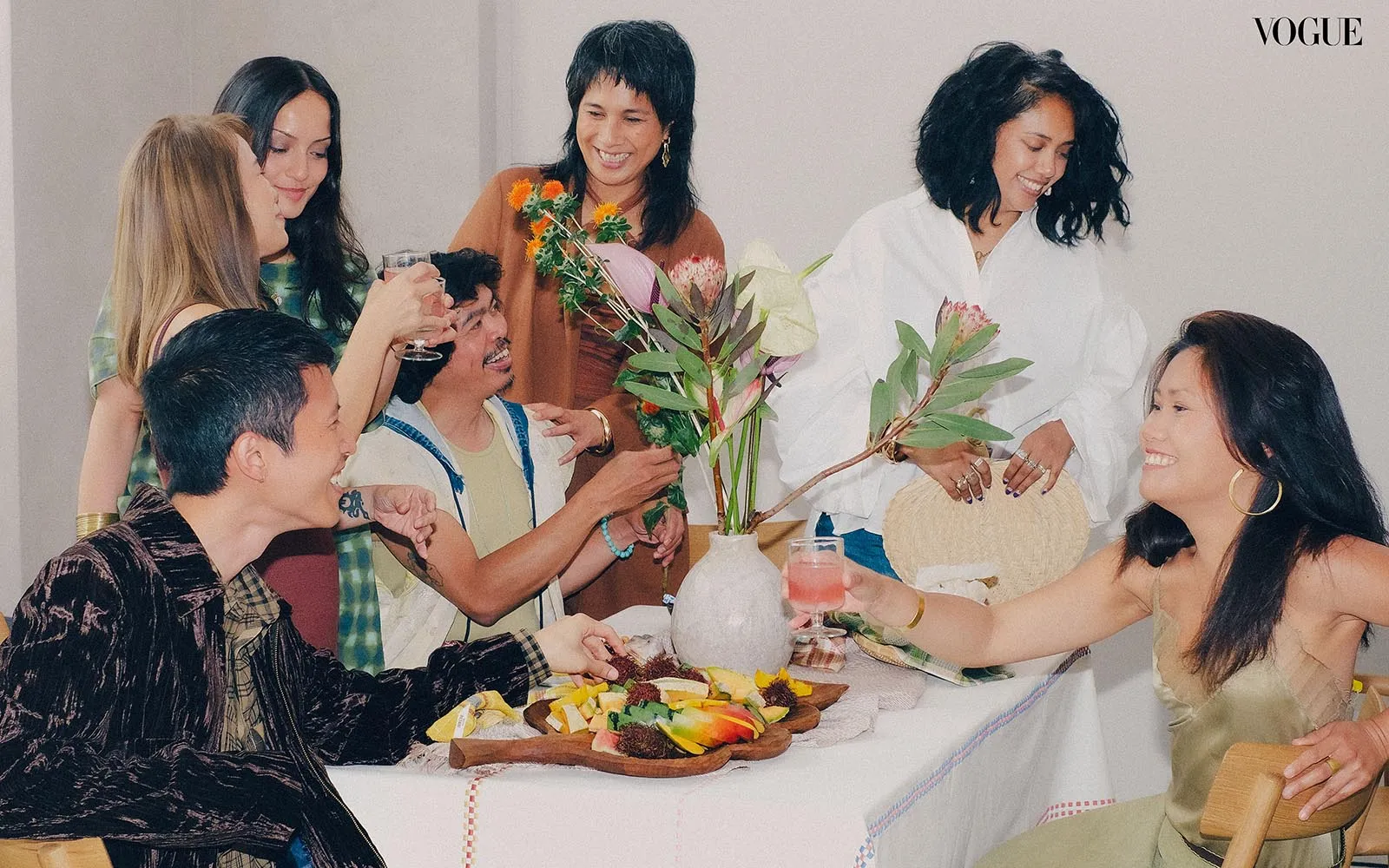
From left: Enzo Camacho, Ana P. Santos, Jasmine Grace Wenzel, Pepe Dayaw, Lizza May David, Lynhan Balatbat-Helbock, Rosa Castillo. Photographed by Augustine Paredes for the September 2025 Issue of Vogue Philippines
Curator and researcher Lynhan Balatbat-Helbock has molded how Berlin’s cultural institutions create space for dialogue among marginalized identities over the last decade. Executive managing co-director at art center SAVVY Contemporary, she explores colonial traces and activates archives with artists and activists to uncover silenced histories. “[Berlin’s] spaces that enable shared spaces for collective thinking and never-ending creation of networks are truly special,” she reflects.
“I think artists make Berlin,” states visual artist Leon Leube. “There are more artist-run spaces with a DIY attitude… it’s possible to experiment without the pressure of immediate commercial success.” Leube is currently in one of Berlin’s most-known artist programs, the Berlin Program for Artists (BPA//).
Amongst prominent contemporary artists here, Stephanie Comilang has also thrived through the city’s artist-focused programs. Since migrating to Berlin in 2012, her video and installation work spotlighting Filipino narratives are now globally exhibited and recognized.
Anthropologist, professor, and curator Rosa Castillo is also a key voice in decolonizing knowledge production and amplifying the Filipino presence in Berlin’s cultural and academic spheres. Founding the Philippine Studies Series Berlin, and later leading to the Philippine Studies Program at Humboldt University, her 15 years of activism here have platformed Filipino creatives while fostering social justice awareness and international solidarity through organized lectures, film screenings, exhibitions, and concerts.
In a city that can at times feel individualistic, Castillo’s efforts have laid the groundwork for more community-centered, politically active groups in Berlin, such as ALPAS Pilipinas, a collective co-founded by artist Enzo Camacho in 2021. “We try to show how the struggles of Filipino migrants are rooted in fundamental problems afflicting the Philippines,” shares Camacho, who leads ALPAS Pilipinas, also with shared solidarity to other pertinent, marginalized global struggles. “After all, these are the reasons that so many Filipinos are forced to migrate in the first place.”
Writer, community organizer, and cultural worker Jasmine Grace Wenzel is also co-founder of ALPAS Pilipinas and committed to fostering collective learning spaces. “Cultural performances, Filipino songs (karaoke!), and food are very integral parts of holding our community together. Building these spaces and structures is what holds us in the most essential ways: eruptive laughter, moments of joy and relief are the essence of sustainable work of community organizing.” Wenzel’s work also extends beyond platforming Filipino issues, but also connects her allyship across borders.
“The Filipinos around me in Berlin have given me a broader definition of what it means to be Filipino.”
Alexis Convento
Gathering over communal meals and cooking for each other is at the heart of fostering our shared sense of belonging. Artist Pepe Dayaw is among its instigators through their witty and melodic cooking performances that introduce other Berliners to Filipino heritage and history. Their former artist space, Sari-Sari, was where I first encountered Berlin’s Filipino academic and creative community.
In the gastronomy and restaurant scene, Jessica Tan and Jeffrey Claudio bring the warmth of Filipino hospitality and craft through their charcoal-and-woodfire restaurant Stoke, a reflection of their learned techniques and experiences as diasporic Filipinos who grew up outside the homeland.
Artist and producer Alexis Convento’s playful takes on her beloved Filipino dishes extend beyond her culinary experiments and pop-ups. It bleeds into her drive for community building, co-organizing annual Filipino summer picnic karaokes. Convento is the initiator of our beloved “Filipinx Berliners” WhatsApp group, mostly consisting of creatives. The group initially began as Convento’s way to “collect” Filipinos she met in Berlin; now, with over 100 members, it is a channel to connect, invite each other to our performances, exhibitions, events, or for squeezing pasalubong in our suitcases. “The Filipinos around me in Berlin have given me a broader definition of what it means to be Filipino,” Convento says. “I love that my Filipino friends here come from a multitude of backgrounds, upbringings, perspectives, yet still share so many core values.”
Berlin is a city where juxtaposing philosophies can co-exist. For independent journalist Ana P. Santos, Berlin is the nexus for her seemingly disparate research interests. “Issues that I write about: gender, sexuality, labor, migration, rights, Berlin is where they all intersect. It’s where I can live out parts of those topics and explore them in a way that is very daring, but also safe,” Santos shares. “I love that Berlin puts all these parts of me together, because I always felt that it had to be separate.”
Art director Christina Neri, whose practice leans into fashion and styling, sees Berlin as a place where personal and professional growth can happen simultaneously, despite the city’s reputation for hyper-hedonism. “Berlin doesn’t demand conformity. It’s one of those rare cities that doesn’t ask you to arrive polished, just honest,” Neri reflects. “There’s a rawness to the city, a sense that it’s okay to be in progress.”
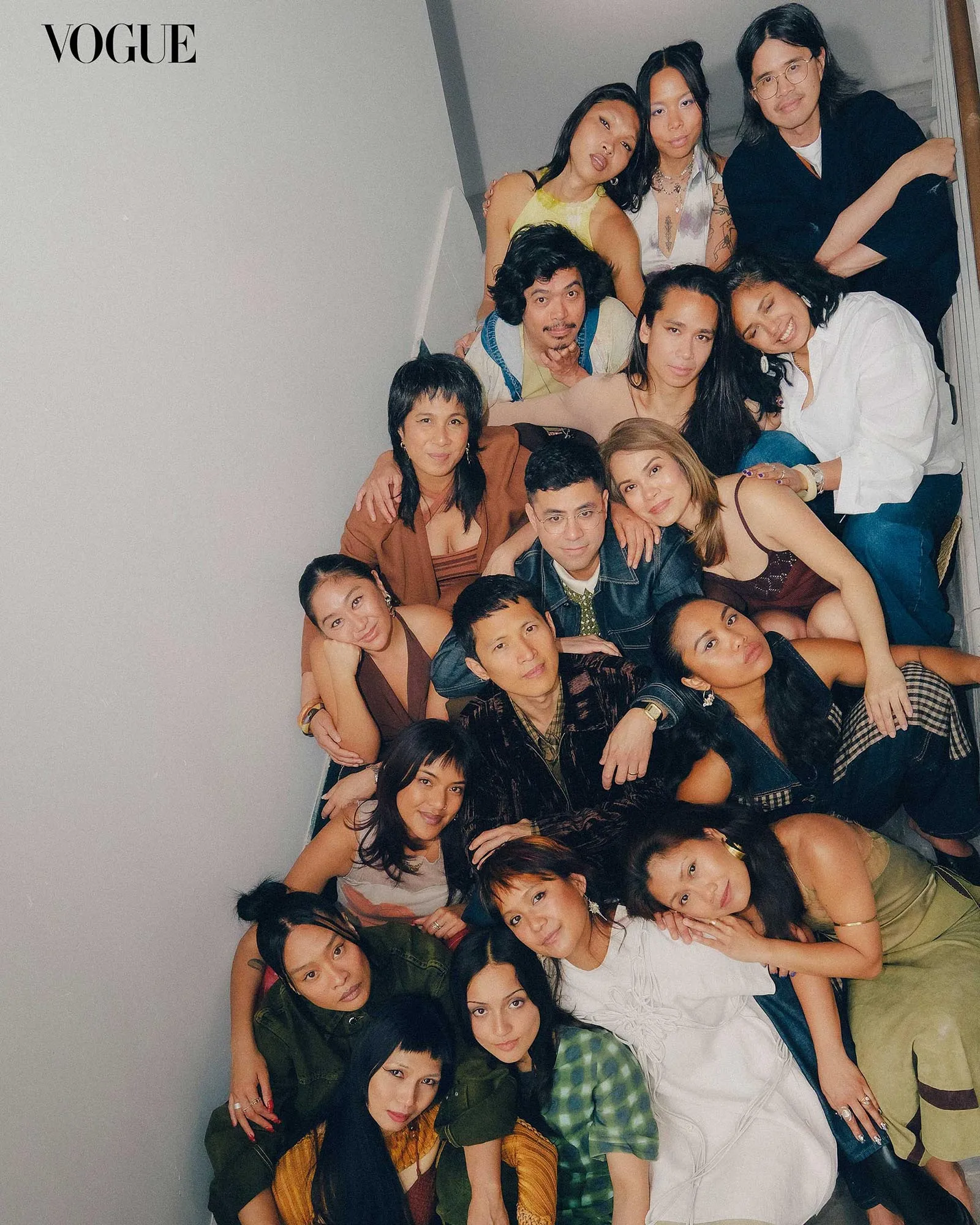
From top to bottom, left to right: Lukresia, Jeffrey Claudio, Pepe Dayaw, Mariel Bulaong, Lynhan Balatbat-Helbock, Lizza May David, Leon Leube, Alvin Collantes, Anna Bernice delos Reyes, Ana P. Santos, Jessica Tan, Enzo Camacho, Rosa Castillo, Tina Neri, Stephanie Comilang, Jasmine Grace Wenzel, Alexis Convento, Ariana Louise Villegas. Photographed by Augustine Paredes for the September 2025 Issue of Vogue Philippines
It’s this sense of experimentation that makes Berlin still worth living in. “In New York, my creative path was tied to surviving. But Berlin gives me the freedom to play,” Ariana Villegas shares. An art director for music software company Ableton, Villegas interacts with Berlin’s overlapping communities in music and digital creativity. You’d often find her in kwia, a Filipino-owned ambient listening bar: a queer, alternative space for nightlife and music. For Villegas, Berlin gives space for ideation: here she co-founded F4RM, teaching creative technology to underserved communities in the Philippines.
In the same vein, creative director and tattoo artist Mariel Bulaong thrives off the “electrifying creative energy” of her communities here, particularly the Filipinos. Beyond her creative commercial work, as part of her tattooing practice, Bulaong creates contemporary tattoos inspired by the pre-colonial Filipino tattoo designs, those almost completely erased during colonization and only kept alive through a few indigenous artists like Whang-od.
Berlin’s lack of blueprint is both a challenge and a triumph for creatives who decide to make a living here. Dancer Alvin Collantes, also known as their alter ego Bibingka (a reference to a Filipino rice cake), is one of Berlin’s few Filipino drag queens. For them, this lack of blueprint offers an opportunity to embody kapwa, developing relationships with a shared sense of connectedness, togetherness, especially through our shared immigrant struggle. “Perhaps Berlin’s chilling history cracked open new possibilities of living and relating with others. In Berlin, it’s not so much about the outcome, but the relationships cultivated, the process shared of performance-making,” he says.
“Berlin is an audacious city,” adds model and performance artist Lukresia. For her, Berlin’s people go “against the grain,” giving her the freedom to be her “unapologetic self” and unleash her “kanal” energy, “this candid, often blunt quality that stems from sincerity.”
Many Filipinos in Berlin were not born here; we chose to move to take risks, antagonize the mainstream Overseas Filipino Worker path and chase a sense of creative purpose. The work of Filipino creatives here is not often done loudly, yet the echoes of their labors are heard by those who listen. As we experience shifts in Berlin’s sociopolitical climate, many of us have gravitated to each other to quench the desire to be seen and understood, to engage in discussions that can only be deepened by shared contexts and histories. There is a comfort in solidarity, in shared ideating and pondering of our diasporic responsibility to represent thoughtfully and consciously; to inquire of our identities and histories in a curious way. All of this in hopes of collectively exploring a more authentic, and perhaps decolonized, future.
Today, Berlin is not as it was. Its contemporary challenges make us question our tenacity here: the growing individualistic divide, political upheaval, anti-immigrant rhetoric, rising cost of living, cultural budget cuts, among other issues that make it feel an easier choice to pack our bags and migrate elsewhere. And yet we still exist here, the stronghold of kapwa grounding us, motivating us to cultivate the seeds planted by those who trailblazed before us. Perhaps, it’s our kapwa that makes us stay.
By ANNA BERNICE DELOS REYES. Photographs by AUGUSTINE PAREDES. Creative Director: Mariel Bulaong. Photography Assistant: Gaia Bernabe-Belvis. Videographer: JK Chekpo. Video Assistant: Simon Lewien. Executive Producer and Food Styling: Alexis Convento. Production Assistant: Leopold Stöckert. Styling: Tina Neri. Styling Assistant: Aaron Teferea. Movement Director: Thomias Radin. Hair & Makeup: Mariya Madzharova. Hair & Makeup Assistant: Erika Leadbeater.
Shot on location at Stoke, Berlin. Special thanks to Heart to Find, Prag Agency, and Reference Studios.




